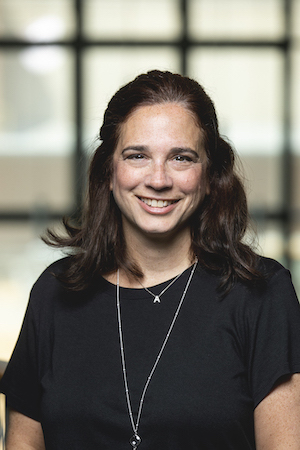
George Mason University’s Allison Redlich is being recognized by her peers for her scientific achievements as well as her mentoring efforts.
Redlich, a professor in the Department of Criminology, Law and Society within the College of Humanities and Social Sciences, found out last week that she had been elected a Fellow of the American Psychological Association (APA). The honor follows on the heels of word that she’s also going to be honored with the 2021 American Society of Criminology Mentor Award at the society’s upcoming national conference in Chicago.
“It feels wonderful,” Redlich said, “especially the mentoring one. I myself have benefitted so much from exemplary mentoring that it’s really important to me to pass it forward. So that one was especially nice to receive.”
James J. Willis, a professor and the chair of the Department of Criminology, Law and Society, called Redlich one of the department’s most outstanding faculty members.
“In the same month, to receive national recognition for her scientific contributions to psychology and law, and for mentoring future scholars, is quite remarkable,” Willis said of Redlich. “The fact that she manages to perform at such a high level while also serving as the department’s associate chair and director of graduate programs makes these achievements even more noteworthy. She is an invaluable asset to George Mason University and her accomplishments elevate us all.”
Established in 1995, the Mentor Award is designed to recognize excellence in mentorship in the discipline of criminology and criminal justice. Redlich is the second Mason professor to be honored with the award, after David Weisburd received it in 2016.
Robert J. Norris, an assistant professor within the Department of Criminology, Law and Society, credited Redlich for much of his own success.
“I would not have been nearly as successful if it were not for her,” he said. “She essentially taught me what it means to be a researcher and scholar.”
Fellowship status is bestowed upon APA members who have shown evidence of “unusual and outstanding” contributions or performances in the field of psychology, according to the organization’s website. Fellow status requires that a person’s work have a national impact on the field of psychology beyond a local, state or regional level.
